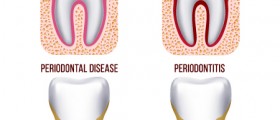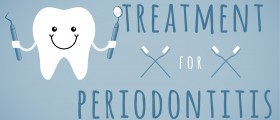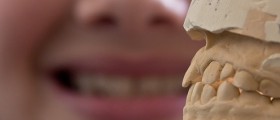
Halitosis is a medical term for bad breath, which does not sound like a major health issue, unless it is severe and chronic. In that case, bad breath does require medical evaluation.
Basically everyone has bad breath every once in a while and they can easily solve it with some improvements in oral hygiene or simply by chewing a piece of freshening chewing gum. Still, there are people for whom halitosis is a big issue and a major concern, because it is constant and apparently incurable, which, naturally, results in great frustration and social embarrassment.
Causes of chronic halitosis
There are hundreds of possible reasons why a person has bad breath. Halitosis can be artificially induced, for example by eating particularly aromatic foods, such as garlic. Smoking cigarettes or drinking alcohol, crash dieting or protein-only dieting, infections in the oral cavity, such as caries, gum disease, oral infections, dry mouth, tooth plaque, bacterial colonies on the tongue or in periodontal pockets, nasal infections, laryngitis, pharyngitis, sinusitis, post-nasal drip, foreign objects in the nasal cavity, chronic tonsillitis, acid reflux and other gastrointestinal problems are all known as possible causes of halitosis, especially if they are combined, which is not rare.
Certain systemic disorders can also cause chronic halitosis or bad breath, especially diabetes, kidney or liver disease, as well as lung disorders.
In addition, there are many medications that list bad breath as one of the side-effects.
Bad morning breath can be considered chronic, but in most cases it is not a cause for concern or special medical evaluation. It occurs because during the night the mouth produces less saliva, allowing remaining food particles to stagnate and dead cells to shed and accumulate.
Management of chronic halitosis
The first step in treatment of chronic halitosis is to investigate all possible oral and systemic sources of bad breath. This may require quite some time, since there are so many possible causes. Once the source is detected and addressed, the halitosis should be solved.
However, there are other steps that one can do to reduce bad breath. Proper oral hygiene is, logically, the most important step, and it should include frequent brushing, flossing and rinsing with antibacterial mouthwash. It is also important to use a tongue scraper to remove bacterial debris and dead cells from the tongue, preferably once a day.
In case of severe chronic halitosis, doctors may recommend prescription-strength mouthwashes, with more powerful ingredients. These should never be used without a doctor’s prescription or in excessive amounts.
















Your thoughts on this
Loading...